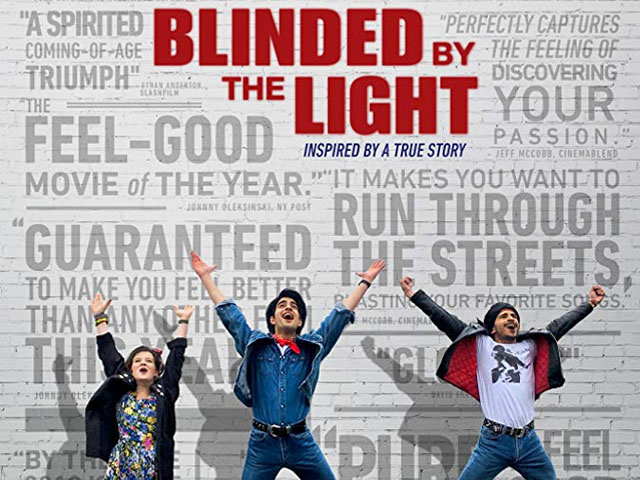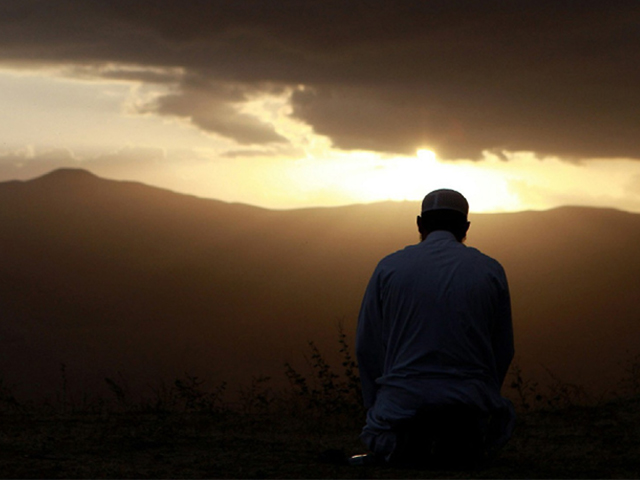
She was my mistake
Today, after twenty years of suffering, I welcome the pain; it is the sensation which will liberate me.
I stepped out of the air conditioned car, onto the street which seemed to have been paved with the heat of hell. In a matter of seconds, my sunglasses began to fog from within and I took them off. It seemed like the sun was a foot away from my head. I squinted and rubbed my eyes for a few seconds before my gaze began adjusting to the burning weather. It was a typical mid-summer afternoon in Karachi, but coming from a breezy city like Toronto, the air was suffocating.
I walked straight towards the monstrous wooden doors, guarded by two security guards, and as I had anticipated, they let me in without any questioning. The common Pakistani man always seems to be intimidated by a man in a suit, especially when he steps out of car worth millions of rupees. I knew if I walked the walk correctly, they would hold the doors open for me. I guess some things never change.
The open doors led to an open school ground. It was time to clean out the skeletons in my closet. Just as I was exposed to the ground, I sunk in my own wistfulness. A massive wave of nostalgia overcame me and I stood struck by the memories for a few minutes.
There, on the left, used to be the sports office, where I would regularly check my name on the board to see if I had made the cricket team or not. On the right used to be the twin canteens which were separated by a fence for boys and girls. I would line up every day with my friends and rush to grab the last piece of foiled beef roll. In the middle of the ground lay the cemented cricket pitch, where I had perfected my skills.
The tall white buildings that rose from the ground on either side of the school gave me immense joy. Twenty years ago, they were the last thing I would want to see. But today, after two decades of a mournful divorce from this place, I could not be happier to witness them. Each floor of these buildings had a different tale to tell.
The building on the far left was my primary campus. All the pencil picking and address learning had been done there. On the right was my secondary building. That is where I had gone through puberty, and learned what calculus was and wreaked a lot of mischief.
Memories came rushing back; the time I had broken the chalk eraser in grade seven, the time I had snuck out of class and bunked my history period, loitering around the water cooler in grade nine. Or the time that I had picked my first and last fight and had broken Mohammad Ali’s nose in grade 10.
So many memories of those past wondrous years came flooding in.
I was in the center of these memories, the protagonist and the hero. And yet somehow, they felt like folk tales; stories that one tells others for self-amusement. They have no truth to them, just stories that fade away with time.
But when I was living them, they were real. They were what I had known to be true. I had created my own food for life, and this is where I got the flavouring from.
I saw the cement pitch on the rocky yellow sand with great pride. I walked towards it, like I had done so many times before. Rejoicing a wicket taken by a fellow player, or putting my head down with shame as when we would lose an easy match, my walk towards that pitch had always been remarkable.
But today I walked towards it with a different motive. I walked towards it so it may relieve me of my pain. I walked towards it not as a 17-year-old boy who believed that the world was his, but a 37-year-old man who had realised that it was not. I walked towards it with shame, a strong sense of shame that I was unable to fulfil all my promises to it. I walked towards it to seek redemption.
Every step I took, I got lost further and further into my mind, drowning in its empty abyss. Finally, I took one step on the rugged gray piece of cement and stepped on to the centre of the pitch, my back towards the secondary building.
I hoped what I had come here for would finally pay off, that I would not be disappointed after I turned. I saw my shadow on the ground. It looked ready for the 180 degree spin. And with a twist of my heel, I spun.
For a second nothing happened. I looked straight at the wall of the secondary building that stretched on for meters, turning till the far corner and then continuing again, so it made a rather large L shape. For years, the wall of that building served as a boundary for our cricket games. Alongside the wide walls were benches lined up under the shade. Those benches served as a meeting point for our ‘gang’. It was there that we used to gather and plan the rest of the school day.
And then it began.
My brain finally picked out the memory I had long been savouring. At the east end of the secondary building was a gate that opened into the auditorium, where we would take our O’ level exams. I fondly remember the day I took my final Islamiat exam. I had written a perfect answer and walked straight to the pitch to get away from the tall shade that the secondary building cast upon the ground. The sunlight relaxed my muscles and I felt free under the burning sun.
My friends would soon follow me to the centre of the pitch to discuss the exam. One said it was amazing, the other complained about the time constraint. One said he was surely going to flunk it. A lot of conversations had taken place right where I stood now.
And suddenly, the voices seemed to diminish as a young girl stepped out from that gate on to the rocky field. Her pencil box clenched between her teeth as she redid her hair in a bun. Her hair band wrapped around her wrist as she fixed the little strands of hair that fell loosely over her forehead. She gave her neck a little jolt and fixed the band on her hair and pulled the pencil box out of her mouth. She asked her friend if her hair looked fine. She then smiled and gave an ecstatic scream about her exam. The gleam in her eye dimmed the scorching sun above me; I could have sworn that nothing could be more perfect than the moment.
She took small strides towards the benches and sat down. One of her friends seemed to insist that she had quoted some Hadith wrong, but she had no care of the exam anymore. She was free. She seemed to tell her that she was indifferent and made her realise that summer vacations were finally upon us. Not a moment went by when the mesmerising smile left her face.
I could still hear my friend talking, but somehow he was muted. Everything had paused. I had a tunnel vision only of her. That was all I could see. Her, sitting on the white marble bench with her feet crossed – so majestic. Minutes went by and I continued to look at her, not batting an eyelid. I had seen her before, but not like this. This was something I had never felt before.
Soon enough her gaze met mine and I felt as if my heart had been electrocuted. My heartbeat increased and I could feel the boneless muscle in my chest skip a beat every time it made the effort of pumping blood into my astonished body. My lips curled into a smile, my cheeks went red but I did not avert my gaze. Her smile turned into amazement. She took up the challenge and continued to stare at me, not knowing what enchantment she was putting me under.
Soon she stuck her tongue out and made the most ridiculous face she could make. It was like watching a flowery meadow in spring. I laughed, not at her face, but at how it made me feel. I broke away from my little group and walked towards her. I felt each step I took led me to enlightenment. This was my good fortune I was walking towards, the pot of gold at the end of the rainbow.
When I was in her presence I stopped. She raised an eyebrow, her smile still glued to her face.
“Hi,” I said.
“Hi,” She replied.
“Hi,” said a teenage boy standing next to me.
I looked over my shoulder and I realised I was standing on this gray paradise for a long time. The ghosts of my past evaporated like vapour in front of me.
“What are we looking at?” he asked.
He must have been 15 or 16. I hesitated to answer. I made a living constructing fairy tales but today I was at a loss of words.
“Just thinking,” I finally said.
“About what?”
“About how fast we grow up, but how slow our memories do.”
He looked confused. He pondered upon what I had said and shrugged it off. He stared at my face for a long time, as if trying to remember me from somewhere.
“Have I seen you somewhere?” he inquired.
“I don’t think so.”
I knew he had seen me. A picture of me was printed in his English curriculum. Soon enough he pulled out a book in his bag and flipped to the back cover, only to see my face smiling back at him.
“You’re this guy!” he screamed.
He suddenly understood he had met a celebrity. His realisation faded soon as he heard the final bell of the day and realised school had finished. Almost involuntary, without even asking for an autograph, he shoved the book back in his bag and stood beside me silently, staring at the auditorium gate.
A bunch of students exited from that door and out to their vans and I saw him examine each one. His vision halted on one particular student, a girl that walked past with her books placed against her chest while talking to her friends. She exited the doors and out the school. I looked at the boy again and saw a smile develop on his face. He gathered his things, shook my hand and made his way to the exit.
I stood there perplexed at what had happened. For a brief moment, I could see the spark I felt for her in this young boy. Were kids still capable to feel what I had felt two decades ago? If so, were their destinies similar to mine?
I was stuck on that notion when I saw her again. Sitting on her white marble throne like a queen, she was just like I had remembered her. The young girl that had not a care for the world, the young girl who had taught me more about life than life itself, the young girl I had abandoned to chase my dreams, only to realise she was the dream. And now it was too late.
She saw me and flashed her wicked smile again. She then stood up and walked towards the gate. My brain was playing tricks on me. She was not real. But I had the urge to follow her, to set everything right, to tell her I was sorry. But I could not.
So I stood there, sheepishly atop the gray paradise and under the blazing sun. I remembered how the boy’s face lit up when he saw the girl walk by. I could fondly picture myself in his position; believing love was as simple as they showed it in movies.
I put my glasses on and walked towards the giant doors.
I was a prisoner of my regrets and this was my punishment. For twenty years she pecked on my brains, reminding me of the mistake that I had made. Today, after twenty years of suffering, I welcome the pain; it is the sensation which will liberate me.
Pain, my impeding friend.




COMMENTS (120)
Comments are moderated and generally will be posted if they are on-topic and not abusive.
For more information, please see our Comments FAQ